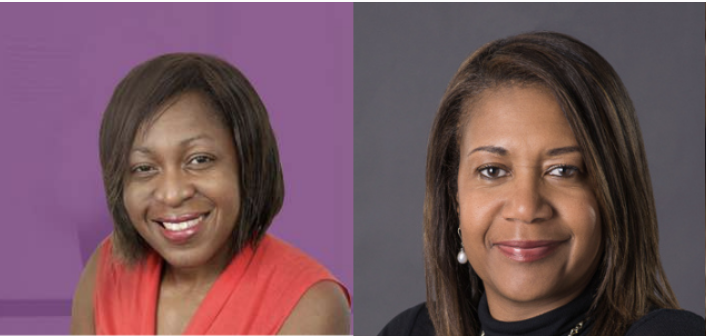On 25th May, Paula Okonneh and Tesse Akpeki presented the latest in GuildHE’s series of lunchtime anti-racism webinars.
Paula describes herself as a ‘global citizen’ who has lived in five countries, including the US, the UK and Nigeria. Paula has experienced racism through the eyes of her children, for example when her son came home aged 7 from school after a discussion about civil rights. During this discussion, her son heard arguments about how much America had progressed and was told that thanks to the progress that America had made in terms of race, he (being black) was now able to go to a private school.
Paula was worried before moving to the US due to what she had seen in the news, as well as the history of slavery and firearms, with black poeple being harrassed and targeted. The current problems are ongoing and are not going to suddenly disappear. However, Paula is happy that Kamala Harris, a “woman of colour” has become Vice President, and there is visible representation. As these conversations continue, Paula hopes that racism will start to be addressed in a more positive way.
Paula was born to immigrant parents, her mum being from the Caribbean and father from Nigeria. Whilst she was based in the Carribean, Paula felt different due to having a different (African) surname. After moving to England to do her A-levels, Paula experienced her first blatant form of racism. Having lived primarily in countries where black people were in the majority, aged 16 or 17, Paula got called the ‘n word’. Later in life, both Paula and Tesse had moved to Nigeria from England and felt ostracised. At that time, they had no access to mental health support and their friendship grew based on their differences relative to everyone else. Whilst in the US, Paula had experiences where people claimed not to understand her due to her accent and on one occasion she was asked if she needed an interpreter, despite English being her mother tongue. Being different was not something that was celebrated and it even affected the likelihood of securing certain jobs as a result of racial bias.
In her podcast, Paula seeks to inspire women who feel voiceless and marginalized. She explained how people can find a sense of belonging and connection, by finding a community that embraces you. Indeed, Paula sought out the Nigerian community in Charlotte, North Carolina, where her values were appreciated. Giving back to the community can help you with your own mental health, as feeling valued is something that every human being strives for.
Paula also spoke about the importance of taking care of your wellbeing and resilience. Everyone has the right to live and a purpose. Voicing your thoughts can have such an impact.
Tesse discussed the meaning of resilience- dealing with pressures and uncertainty as well as the multiple different forms of resilience- including growth mindset. Resilience can be physical, mental or even emotional. There are multiple different approaches to resilience, which include cultivating gratitude, building optimism and being positive, whilst finding meaning and purpose.
Tesse gave some examples of things that we can do to support ourselves, such as giving ourselves enough sleep, creating a wellbeing routine and talking to others in our social network about how we are feeling.
Tesse explored finding wellness after the trauma of a racist incident and how there are some things that we have no control over. We should choose to connect with people who accept us for who we are and do not expect us to code-switch. As well as this, having allies is very important.
It is a positive thing to recognise our privilege in Tesse’s view. If we have access or power that was given to us then we can use it to change things, for instance by bettering both our own wellness as well as that of others.

